For many people, the hardest part about finding a mortgage lender is simply knowing where to start. There are a lot of lenders out there — some small and local, and some large and national — so you shouldn’t feel discouraged if you’re having difficulty getting your search started.
This post will aim to make the process of picking a mortgage lender easier by offering some basic advice.
We’ll also provide contact information for Pickett Street’s recommended lender, Cody Touchette (MLO 83216), giving you a quick connection to an expert committed to providing outstanding service. In addition to looking over our guide to picking a mortgage lender, check out Cody’s website for more information: The Touchette Team.
Where to Start
One way to start narrowing down your options is fairly simple: ask friends and family. More specifically, ask your friends and family who own homes for recommendations. If you have a friend who just bought a house and is absolutely thrilled, ask her who she worked with and how she worked with her lender to ensure she got the best deal possible. If you’ve got a cousin who’s been an unsatisfied homeowner for several years, ask him who he worked with and what he wished he would have done differently. That way, you can be sure to work with a different lender, buy a gorgeous home, and then invite your disgruntled cousin over so you can gloat.
Sometimes, however, your friends and family might give you unfavorable recommendations. Or perhaps they’re just strangely absent minded when it comes to real estate. If your immediate acquaintances prove unhelpful, or if you just want to do some independent research, it’s worth looking around online. To quickly find reliable lenders in your area, check out the website of your local Chamber of Commerce. Once there, you should be able to view local real estate service providers, including mortgage lenders. If you’re searching online, however, be wary of scams. A lender advertised online by a frantically bouncing notice with flashing lights is probably not trustworthy.
Should I Choose a Small Lender or a Large Lender?
There’s no easy answer to this question, but it’s a good idea to keep a few points in mind. First of all, smaller lenders will probably be more personable, as they have a smaller customer base. Larger lenders, however, might have a wider variety of services to offer, such as online payment plans. A small lender isn’t necessarily better than a big lender, and vice versa.
Think of this decision as if you were deciding on a route to take during a road trip. The smaller road might give you scenic coastal views, but the interstate highway could get you to your destination faster. Both will get you where you want to go, so it all depends on how you want to get there.
Research Reputations
Once you’ve narrowed down your options, research your potential lenders. One of the easiest ways to do so is to check with the Better Business Bureau. This site should not only list real estate companies in a given area, but should also include customer reviews. Additionally, the site should tell you if customers have levied complaints against a particular lender.
It’s also worth checking out a lender’s website. Most companies will have mission statements describing their approach to the business, and you should read this carefully.
Above all, look for folks renowned for customer service. Buying a home is a major milestone, and you deserve to work with a reliable, helpful, and trustworthy lender who can get you the best home possible.
The Good Faith Estimate
Once you’ve narrowed down your options even more (we’re talking about choosing between three or four lenders, here), ask your candidates for a Good Faith Estimate. A Good Faith Estimate is essentially a list of estimated costs you can expect from a lender. It’s required by law, so it’s a red flag if a lender seems reluctant to provide you with one.
When you get your Good Faith Estimate, you can expect to see some of cost estimates for essentials such as:
Taxes
Insurance
Settlement/Closing fees
Attorney Fees
These are just a few of the costs you can expect in your estimate, but there’s no need to list all the items here. The main point you should understand is that a Good Faith Estimate will be exactly what it says: an estimate. The costs provided are approximations, so the final fees will be either higher or lower than the original figures provided.
While comparing estimated costs, keep in mind that, while cost should obviously factor into your decision, low fees aren’t everything. It might be worth paying more for a lender who can give you fantastic and specialized service, rather than paying less for unsatisfactory service.
Pickett Street’s preferred lender is Cody Touchette (MLO 83216) with Caliber Home Loans. To work with Cody, call 425.492.1698, or email Cody.Touchette@caliberhomeloans.com for more information.
